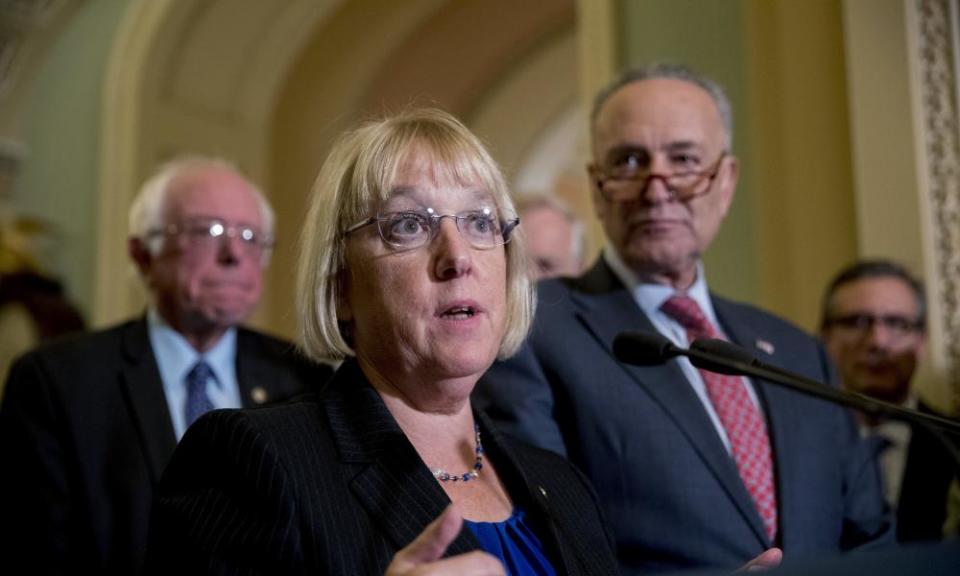New office will help medical providers deny treatment on religious grounds

The Trump administration is creating an office to protect the religious rights of medical providers, including those who may oppose abortion or transgender rights, in a decision that is likely to be a lightning rod for controversy.
The new “division for conscience and religious freedom” in the US Health and Human Services Agency will defend healthcare workers who, on religious grounds, refuse to treat patients or take part in procedures. The division will be part of the agency’s Office for Civil Rights.
“Laws protecting religious freedom and conscience rights are just empty words on paper if they aren’t enforced,” said Roger Severino, the director of the health department’s civil rights division, and an outspoken opponent of abortion, same-sex marriage and anti-discrimination protections for transgender people.
Among the speakers at the announcement of the new division were pro-life lawmakers; the leader of a religious liberty foundation who fought against a mandate that health insurance cover birth control; and a midwife who said she was wrongly refused a job at a women’s clinic because she opposed abortion.
“No one should be forced to choose between helping sick people and living by one’s deepest moral or religious convictions, and the new division will help guarantee that victims of unlawful discrimination find justice,” Severino said. “For too long, governments big and small have treated conscience claims with hostility instead of protection, but change is coming and it begins here and now.”
Religious and moral convictions have become the latest battleground for anti-LGBT activists since same-sex marriage was legalized. Largely, cases have been fought in court. One of the most emblematic, the case of a Colorado baker who refused to make a wedding cake for a gay couple, was argued before the US supreme court in December.
However, the religious freedom division represents the Trump administration’s preferred governing strategy – making dramatic changes to agencies in the executive branch which Congress does not need to approve.
Already, civil rights campaigners have raised alarms about the new division.
“Religious liberty doesn’t include a right to be exempt from laws protecting our health or barring discrimination,” said Louise Melling, deputy legal director at the American Civil Liberties Union. “It doesn’t mean a right to refuse to transport a patient in need because she had an abortion. It doesn’t mean refusing care to a patient because she is transgender.
“Medical standards, not religious belief, should guide medical care,” said Melling.
Senator Patty Murray, a Democrat from Washington, criticized the decision.
“This would be yet another attempt to let ideology dictate who is able to get the care they need,” Murray said. “Any approach that would deny or delay healthcare to someone and jeopardize their wellbeing for ideological reasons is unacceptable.”

 Yahoo News
Yahoo News 